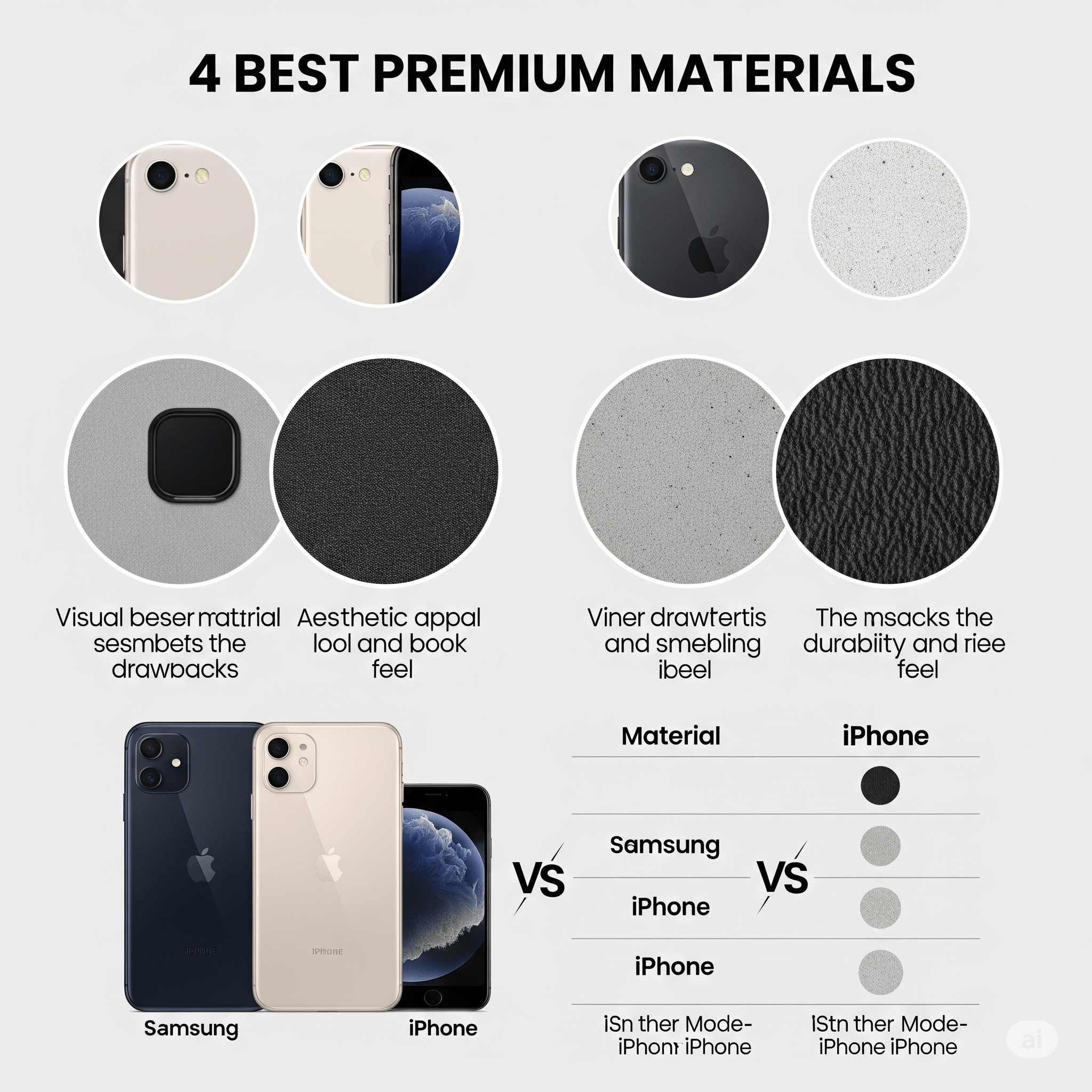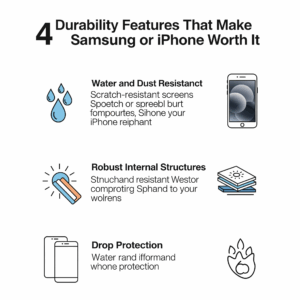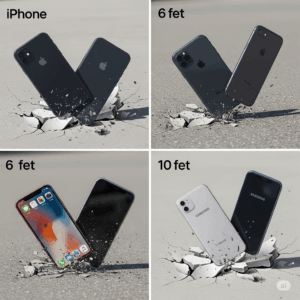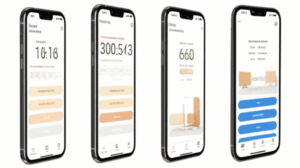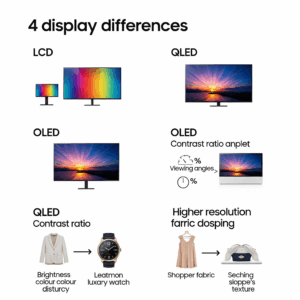When it comes to smartphone design, premium materials play a key role in user perception, longevity, and accessory compatibility. For Shopify eCommerce sellers—especially those offering mobile accessories, cases, and skins—understanding the material composition of the latest Samsung and iPhone models is essential for product development and marketing.
Here are the 4 best premium materials used in Samsung and iPhone phones in 2025, and how each affects your Shopify strategy.
1. Titanium Frames (iPhone 17 Pro vs. Galaxy S25 Ultra)
Apple made headlines with its grade-5 titanium alloy frame in the iPhone 17 Pro lineup, offering superior strength-to-weight ratio. Titanium not only adds a luxurious, brushed-metal aesthetic but also improves durability without the bulk.
Samsung’s Galaxy S25 Ultra, in contrast, uses Armor Aluminum, a custom blend engineered for impact resistance and structural rigidity. It’s slightly lighter but lacks the same high-end polish titanium delivers.
Why it matters for Shopify stores: Case sellers must account for dimensional and aesthetic differences—titanium’s texture may require softer inner linings to avoid abrasion. Start selling with Shopify to access mobile-optimized themes built for tech products.
2. Ceramic Shield vs. Gorilla Glass Victus 3
Apple continues to lead with Ceramic Shield glass—developed with Corning—boasting nano-crystal infusions for improved scratch resistance. It’s used on both the front and back of the latest iPhones, giving a symmetrical and durable finish.
Samsung’s Gorilla Glass Victus 3, used on the S25 and Z Fold6 series, offers similar protection but with enhanced shatter resistance during high drops. It also adapts better to curved displays, which are more common in Samsung devices.
Shopify sellers offering screen protectors should use material-specific keywords and product labels (e.g., “Compatible with Gorilla Glass Victus”) to improve trust and conversion.
3. Eco-Friendly Components
In 2025, both Apple and Samsung emphasize sustainability, but with different approaches:
Apple uses 100% recycled aluminum and rare earth elements in its chassis and internal components.
Samsung incorporates recycled ocean plastics, glass, and metals in both flagships and mid-range devices.
For Shopify businesses focusing on green tech accessories, this opens up powerful storytelling and value alignment opportunities. Highlight material sourcing and device compatibility in your product listings.
Explore how Shopify helps sustainable brands thrive.
4. Hinge & Flexible Materials (Samsung Only)
A unique premium material edge belongs to Samsung’s Galaxy Z Fold and Z Flip series. These devices use ultra-thin glass (UTG) layered with flexible polymers, enabling foldable screens while maintaining glass-like clarity.
This requires specialized manufacturing and case design—especially at hinge points, which now use liquid-metal alloys for smoother folding action and higher cycle durability.
If you sell foldable phone accessories on Shopify, this niche market offers higher margins and growing demand. Make sure your product pages clearly indicate fold model compatibility.
Final Thoughts: Design Matters in eCommerce
Premium materials aren’t just about luxury—they directly influence customer buying behavior, product fit, and store branding. Whether your Shopify store sells luxury phone cases, minimalist skins, or eco-conscious accessories, knowing how Samsung and Apple compete on materials lets you tailor your offering to each audience.
Want to launch or upgrade your mobile tech store? Start building with Shopify and tap into the latest device trends with mobile-optimized templates, analytics, and built-in sales tools.
